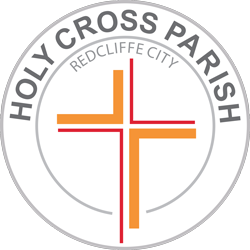Parish based programs for the Sacraments of Confirmation, First Eucharist and Penance are held each year. Confirmation is offered to children who are in Year 3 and up to/including Year 6 in the Queensland Education System. First Eucharist is offered to children who are in Year 4 and up to/including Year 6 in the Queensland Education System who have received the Sacrament of Confirmation. Penance is offered to children in Year 5 and above who have received the Sacraments of Confirmation and First Eucharist. The children journeying toward full initiation into the Catholic faith are prepared for these Sacraments within the family and supported by the worshipping Catholic Community.
The programs are designed for the family with their child to gain knowledge about the Catholic faith and to immerse themselves into the practice of the Catholic faith. The family and child will be encouraged to develop a close relationship with Jesus Christ and to connect with his message. The Sacrament of Confirmation is celebrated by our Bishops. First Holy Communion is celebrated during Sunday Mass. The family will be introduced to the Sacrament of Penance through the rite of reconciliation which provides an experience of the love and the forgiveness that God has for us.
The post sacramental program provides the young person with opportunities for assisting at the Altar as an Altar Server, participation in the Children’s Liturgy of the Word at the 9am Sunday Mass.
